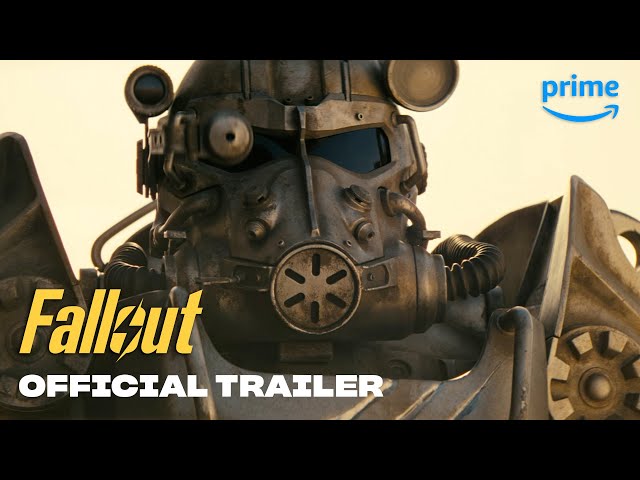Back in December 2022, Amazon Studios and Games Workshop announced they were collaborating on a Warhammer 40k moive project, with Henry Cavill taking a starring role and hopping into the executive producer’s chair. I’ve always been cautiously optimistic about the project, but – thanks to the incredible new Fallout TV show – I’m more convinced than ever that they have the potential to be great.
I’ll try to keep this article free from plot spoilers for the Fallout TV series, and Wargamer has a separate guide to the Warhammer 40k Henry Cavill film project if you haven’t heard about it before. While Amazon is the financier and distribution platform for both Fallout and the 40k project, this isn’t about my faith in them – I’m more interested in the role of directors, screen-writers, cinematographers, and IP owners.

While Fallout and Warhammer 40k are very different sci-fi settings, there’s still a lot in common between them. Both properties developed over a long time, the product of many different creatives, and contain internal contradictions in tone and continuity. Both depict environments totally alien to the modern world, with distinctive aesthetics and expansive histories.
Both worlds emerged from interactive games rather than linear narratives; they were created as backdrops for player choice, and with an assumption that fans would have hundreds of hours to absorb the story. And each franchise can mean very different things to different fans, depending on which parts of their franchise they like best.
All of that poses a serious challenge for creators adapting either setting to the screen. Which are the critical parts of the lore that the audience must know for the setting to make sense? How do you communicate them to the audience without the dreaded lore dump? And how do you set the tone right for a world that has to accommodate real human actors, and things that exist only because of game logic?
The Fallout TV show – at least, as much as I’ve watched so far – is nailing it. The protagonists each represent one great big pillar of lore, from the Vaults, to the Brotherhood of Steel, to the Ghouls, but they each also have clear personal motivations driving them forwards. They’re compelling characters first, representatives of the lore second. That might be screen-writing 101, but it’s all too easily forgotten in sci-fi media.
These point of view characters then contextualise what we’re seeing. When we see grandiose Brotherhood of Steel rituals, it’s as part of the life of a character we’ve gotten to know, and for whom they hold meaning. In turn, that tells us why we should think they’re significant. Without that grounding, the kind of elevated tone risks being corny and camp – a massive challenge for future 40k media.
Likewise the Vault Dweller protagonist is a perfect audience stand-in for the wider setting. She’s experiencing the horror and absurdity of the wasteland for the first time, just like many people in the audience are. Her elevated, optimistic character is perfectly in keeping with the 50s satire Fallout is based on, and it’s a great vehicle for both comedy and conflict.
The willingness to move between tones, from the epic to the farcical, keeps Fallout lively. It ensures that the grim, high concept sci-fi ideas of the setting have the space they need to breathe, but that the (fundamentally pulpy) story never gets derailed by wallowing in self-importance.

There’s lots more that I could rave about; the excellent CGI recreation of Vertibirds and Power Armor, and the great color grading that makes Vault Tek blue pop against the dusty wasteland, are at least worth a mention. It all speaks to a creative team that understands both what makes the original setting special, and how to build a compelling story on top of that framework.
The Dune adaptations have proven that epic sci-fi can make the leap to the big screen, but that was an adaptation of a story, not a setting. The Fallout TV show demonstrates that it’s possible to adapt a story out of a game world, and do a damn good job of it too.
If you’re hyped up on Fallout at the moment, check out our preview of the upcoming Fallout Factions miniature wargame. If you’ve binged the whole series and are hungry for more sci-fi media, we heartily recommend A Thousand Suns, an excellent anthology of sci-fi short films.
Source: Wargamer




